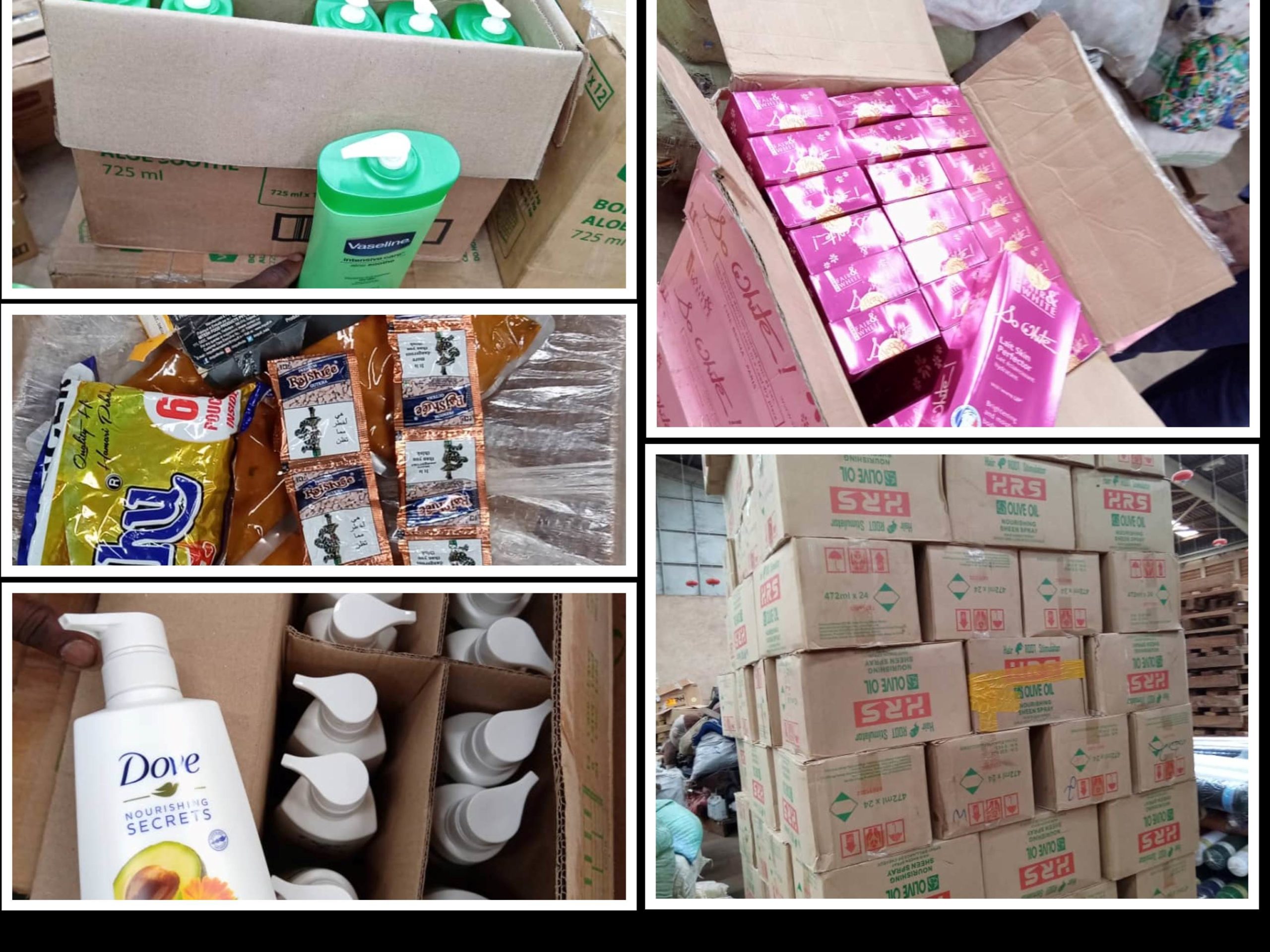Despite their prohibition in Uganda, cosmetics promising skin lightening remain popular, with users often disregarding associated health risks. This concerning trend prompted the Uganda Revenue Authority (URA) customs team to conduct an operation on Nabugabo streets, where expired cosmetics and smuggled tobacco products, such as shisha, were seized.
Emmanuel Emasu, a customs officer involved in the operation, explained that after gathering intelligence for a week, they targeted stores in Nabugabo known for trading in expired cosmetics, including those with altered expiration dates.
Hydroquinone and mercury-containing cosmetics are among the contraband prohibited by Ugandan law. Upon confiscation, these products are destroyed to deter further importation. Other contraband items include drugs, medicines, cigarettes, used computers, refrigerators, and polyethylene bags below 30 microns.
Ibrahim Bbossa, the URA Spokesperson, emphasized that the continuous importation of such products not only poses health risks but also impacts tax revenue, which is vital for service delivery improvement.
“We have encountered illicit trade practices where people engage in contraband products. These evade taxes, and it’s our responsibility as revenue mobilizers to collaborate with other government agencies to address this,” affirmed Bbossa.
He urged the public to refrain from importing or using harmful products, as stipulated in the East African Community Customs Management Act (EACCMA). The Act prescribes penalties, including fines and imprisonment, for violations.
During the operation, various items were intercepted, including expired cosmetics like olive oil hair spray, Dove body lotion, and cake flavors, along with shisha products. Despite ongoing smuggling activities, URA has ramped up intelligence-led operations and leverages Non-Intrusive Inspection technology at border points to curb illicit trade.
Furthermore, URA emphasizes tax education to raise awareness about the risks associated with smuggling, underscoring its detrimental effects on individuals, communities, and the economy. Through these concerted efforts, authorities aim to safeguard public health and ensure compliance with regulatory standards in the cosmetic industry.




















